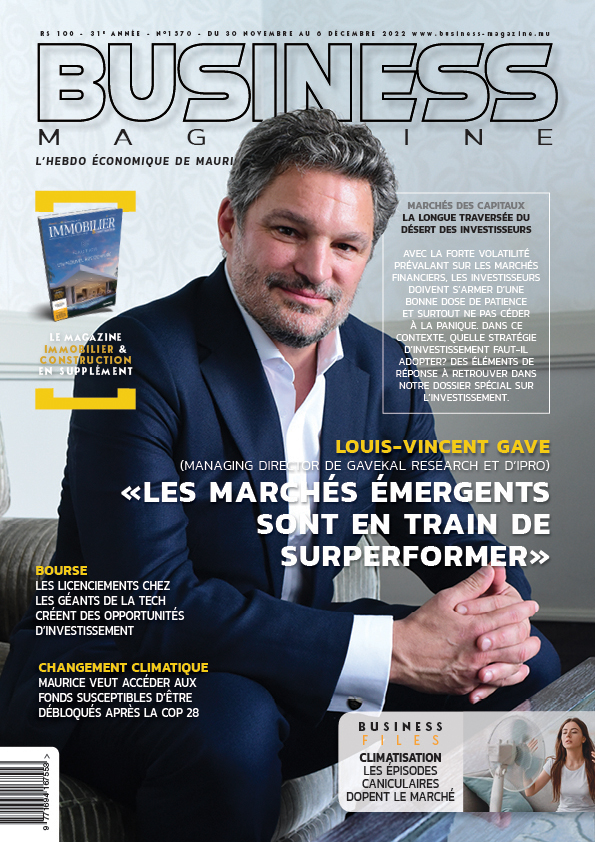Veenace Koonjal : A glance at independent Mauritius
Share

Half a century of ‘Freedom’ in the lifespan of a country may certainly not be sufficient to establish a firm opinion on its achievements in different fields but it is certainly necessary and important, at regular points in time, to conduct evaluations over what has been achieved, as a responsible nation. It creates an opportunity to assess the shortcomings so as to adjust, rectify and reform the nation’s attitudes towards a more promising future.
The 12th of March 1968 is not only a historic date, it stands as a landmark for all Mauritian patriots and the Mauritian diaspora in the world. Mauritius as a sovereign state, from the time when it was officially declared independent, has no doubt achieved a lot in terms of human rights and human dignity; it has created opportunities for self-development through its national education policy and for the democratization of the political, economic and cultural arenas. Thus, a more enabling environment for further mutations, exchanges and developments has been built. Today, a literacy rate of above 90 per cent augurs perfectly well for a more promising future for this ‘great little country’.
Paradoxically, the global situation around us seems to be mirroring a very optimistic picture in terms of scientific and technological innovations and progress despite the melancholic and bleak situations and human crises in some parts of the world. It is no more a secret to anybody today that any international strategic manoeuvre by the most influential nations is driven by selfish motives leading to economic interests, within the realm of the global power game.
As a Small Island Developing State (SIDS), Mauritius should on its part strive together with the other SIDS as one voice to enable more meaningful impact on the international front. Rallying its allies to influence international disputes and dialogues over territorial integrity and environment protection of the most vulnerable countries is more than an imperative today.
The challenges of a nation-state categorised as SIDS are comparatively very specific and diverse. Any country, unless its people share the same common national values – justice, liberty and unity –, cannot prosper as a Nation. Harmony in the multiethnic population is one of the greatest challenges in the nation-building process to attain economic sustainability and prosperity.
A country which has emerged from the shackles of colonialism and is being recreated on its ever-present vestiges, will no doubt have a ‘blended’ system of governance, justice and economy. It rests on the intelligentsia and daring political minds of the country to devise the right mechanisms and approaches, against all odds, to make things happen, in the best interest of the independent country and its people.
Drifting away from the fundamental values and not adopting a proper development model may put at stake the dreams of the free nation. An all-inclusive education model which fosters the spirit of Mauritianism, self-dependency and creativity will uncompromisingly set the pace for an everlasting process of nation-building, creativity, local entrepreneurship and economic initiatives, thus stimulating successive generations.
Government budgetary investment on education has today reached such an impressive figure, to the point of being even cited as an example on the African continent, for its farsightedness and determination to educate its citizens. But, its inability to rightly channel and absorb its human capital has made this great endeavour a real ‘jinx’ on its people.
The dreadful scourge of unemployment, coupled with the distinctive practice of recruitment as impregnated in our system, has unfortunately opened the only way of hope and fortitude through a massive brain drain of our pool of intellectuals, particularly among the young and energetic generation of Mauritius. If only these talents could have been ‘handled’ more tactfully, motivating them to still serve in the best interest of our country even in being abroad, by means of providing a form of strategic package of incentives to the Mauritian diaspora, the returns could have been captured as ‘Income from abroad’ in our national economic accounting.
Our political stage, on its part, since independence, has been quite peculiar in nature. In almost half a century of pseudo-democratic rule, the political arena has been dominated by only a few political parties and some prominent political figures. So far, up to now, the cabinet of ministers must have known around a hundred members only, with four and now (as from 2017) five, different Prime Ministers in total, since independence. As compared to the United Kingdom, which has known nine different PMs during the same period.
Based on the Westminster model of government, the Parliament of Mauritius is still keeping up with some traditions and practices, though the country has already become a Republic, a quarter of a century ago. One of them is the judicial system which still provides for Mauritian citizens to have recourse to the Privy Council. An anachronism in an independent Mauritius! The socio-economic truth of the country also, as indicated previously, still bears the imprints of imperialism. It is only through the political will of true patriotic leaders that this situation can be transmuted.
The Decent Work Country Programme (DWCP) priorities for Mauritius, as enunciated in the Memorandum of Understanding with the International Labour Organisation, is a giant step forward, with regards to the respect of human rights and dignity. The first of these priorities is the creation of decent and productive employment with the provision of adequate social protection. The second one is strengthening social dialogue and the third one is the elimination of all forms of discrimination.
The DWCP in itself is fully in line with the spirit and letter of the written Constitution of Mauritius which explicitly protects the fundamental rights of all its citizens. It is more than time opportune now that adequate emphasis be laid upon the creation of decent and productive employment as a central effort towards achieving the objectives of the global goals. The promotion of poverty eradication is crucial for a more equitable and inclusive society. Thus, endorsing the DWCP signifies the country’s determination to achieve the overall objective of ensuring a fair and equal distribution of the benefits of development to the social partners.
Conclusively, after 49 years of independence, is the Mauritius vibrant democracy today a genuine model for other African countries to emulate? Has the country s쳮ded in establishing its international diplomacy? Is there enough concordance and coherence in its economic diplomacy strategy? Is the country treading in the right direction? Finally, is our Mauritian Nation proud of its identity and of its leaders?




